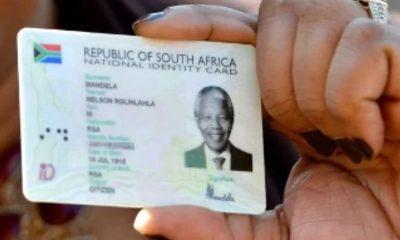News
Transgender Inmate’s Legal Battle Puts Spotlight on Prison Rights in South Africa

When the Equality Court in Johannesburg convenes this Friday, it will hear a case that could reshape how South African prisons treat transgender inmates. At the centre of the hearing is Nthabiseng Mokoena, a transgender woman incarcerated at Johannesburg Correctional Centre, who says her basic rights to dignity and equality have been ignored for years.
The heart of the case
Mokoena, who has been in prison since 2013, argues that the Department of Correctional Services has failed to respect her identity. According to her, officials refuse to use her chosen name and pronouns, restrict her from expressing her gender through clothing and personal items, and subject her to verbal abuse. She is asking the court to order changes that would allow her gender expression, access to gender-affirming healthcare, and fair treatment under the law.
Lawyers for Human Rights (LHR), who are representing her, say this case is about more than one person. They believe it highlights systemic discrimination that continues despite constitutional protections and a 2019 judgment in favour of another transgender inmate, Jade September, which required the department to respect gender identity in prison.
A life shaped by struggle
Mokoena’s personal story adds depth to the legal battle. She began exploring her identity as a teenager, but before she could legally transition, she became entangled in crime and was arrested for serious offences. In prison, medical experts have confirmed that she should receive gender-affirming treatment such as hormone replacement therapy. Yet she says these recommendations have been ignored.
Speaking about her experience, Mokoena describes a culture of neglect. She claims that when LGBTQI+ inmates are attacked, their complaints are brushed aside, and attempts to defend themselves often lead to further punishment.
The state’s defence
The Department of Correctional Services denies discrimination, saying it houses her with another LGBTQI+ inmate because of space constraints. Officials insist they already follow operational procedures designed to ensure dignity for transgender prisoners, pointing again to the Jade September ruling as evidence of compliance. They also highlight that sensitivity training has been introduced for staff.
Still, the department’s assurances have not stopped criticism. Advocates argue that the reality on the ground does not match the promises on paper.
Why it matters
This case is not only about Mokoena’s treatment but also about how South Africa lives up to its constitutional commitments. For many in the LGBTQI+ community, it represents a chance to demand recognition in environments where they are most vulnerable. Public discussion online has reflected both support and debate, with many seeing it as a test of whether the correctional system truly respects human dignity.
If the Equality Court sides with Mokoena, the outcome could set a stronger precedent for the treatment of transgender inmates across the country. LHR describes the case as a critical step toward ensuring that prisons reflect the inclusive values South Africa is meant to uphold.
Also read: MPs Demand Answers on R270m National Dialogue Funding
Follow Joburg ETC on Facebook, Twitter, TikT
For more News in Johannesburg, visit joburgetc.com
Source: IOL
Featured Image: Treatment Advocacy Center

















